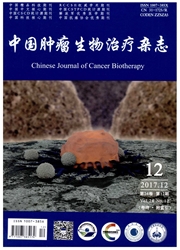

 中文摘要:
中文摘要:
干扰素(interferon,IFN)是最早发现的一类抗病毒感染的细胞因子,主要分为3类,即Ⅰ型、Ⅱ型和Ⅲ型IFN。IFN可通过JAK-STAT依赖和非依赖的的信号途径参与机体多种生命活动过程,如抗病毒感染、调节细胞增殖、调节机体免疫应答等。此外,IFN在肿瘤免疫中也发挥着重要的作用。Ⅰ型IFN可以激活DC释放肿瘤坏死因子相关凋亡诱导配体(tumor necrosis factor-related apoptosis inducing ligand,TRAIL),从而增强NK细胞的细胞毒活性,或直接杀伤肿瘤细胞;Ⅱ型IFN通过活化CTL杀伤肿瘤细胞,并通过提高肿瘤细胞主要组织相容性复合物(major histocompatibility complex,MHC)类分子的表达以增强CTL对肿瘤的识别,或通过调节细胞的代谢间接抑制肿瘤的进展。但在一定条件下,IFN又可以上调Treg、Th17细胞的数量,诱导髓系抑制性细胞(myeloid-derived suppressor cell,MDSC)在肿瘤微环境中的浸润,从而发挥免疫抑制效应,促进肿瘤细胞的免疫逃逸。因此,IFN在肿瘤免疫中是一把“双刃剑”。深入研究IFN在肿瘤免疫中的作用及其机制,探索以IFN为基础的肿瘤治疗新途径(如IFN为主的免疫化学疗法),对改善肿瘤治疗效果具有重要的指导意义。
 英文摘要:
英文摘要:
Interferon (IFN) was early discovered as a family of antiviral cytokines which includes three main classes: type I IFNs, type Ⅱ and type Ⅲ . IFN plays critical roles in multiple biological activities such as anti-virus infection, regulation of cell proliferation and immunological response through JAK-STAT dependent or independent signaling pathways. In addition, IFNs also take an important role in tumor immunology. Type Ⅰ IFNs can activate DC cells to relase tumor necrosis factor-related apoptosis inducing ligand (TRAIL), which can enhance the cytotoxicity of NK cells or kill tumor cellls directly. Meanwhile, type Ⅱ IFNs can activate CTL to kill tumor cells, and can enhance identification of CTL to tumors by increasing the expression of major histocompatibility complex (MHC) or indirectly inhibit tumor progression through regulating cell metabolism. However, under certain conditions, IFN-γ was found to increase the numbers of Treg and Th17 cells and induce MDSC infiltrating in the tumor microenvironment that can suppress the function of immune system and “help” tumor cells escape from immunosurveillance. Therefore, IFNs participate in tumor immunology as a “double-edged sword”. Further studies on the function and mechanism of IFNs in tumor immunolgy, and exploration of new IFN-based cancer treatment (such as IFN-based immuno-chemotherapy) are significant guides to improve tumor treatment.
 同期刊论文项目
同期刊论文项目
 同项目期刊论文
同项目期刊论文
 期刊信息
期刊信息
